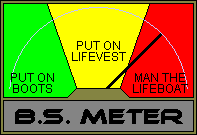Those > $1M testing machines come in both the wafer-probing versions and versions that test whole packaged chips or even finished memory modules.
Nope, price doesn't matter in the slightest. Only accuracy matters. Why would price matter? We only care about accuracy. Guess what? That's all they care about too.
If the $2,000 testers are just as accurate, then the module companies that buy the >$1M machines are foolish spendthrifts, right? Some companies sell both modules tested by the expensive machines and by just PCs, and they charge extra for the former. How could they do that if it didn't matter, especially OEM customers? Neither question has been answered here.
Actually they do test for max clocks and tightest timings because the only way to bin the chips is by is by running them at the fastest specs and seeing which fail, then take the failures and test them at slower speeds, etc. I suspect module makers do the same, especialy because they use so many chips that are rejects or overclocked and don't know how well those chips can do. It's probably only the final testing of the labelled modules that's done at fixed, preset timings.
Do they? Have you ever personally binned a stack of RAM? Do you actually know how the process works? Have you binned anything?
Nope. I'm just going by what was told to me by an ex Motorola engineer where I work and, much more recently, in forums by other engineers who've been a lot more critical of overclocking than I am.
What fastest specs? I smell a lack of real knowledge here. Got any credentials, at all? Guess what: The people you're arguing with have done rather of a lot of binning and speed testing, of a lot of things.
Are you saying companies first test the whole batch at the slowest ratings and then ramp up to weed out the slower chips until the fastest speed rating is reached, rather than start at the fastest and going slower? If so, that makes sense, but otherwise could you explain?
Bobnova said:
Now let's move on the the stick itself.
Testing a RAM stick to the same level of known-stability consumes an 8th to a 16th of the time it takes to test the chips individually, they're testing 8 or 16 chips at once after all. Also there are far fewer sticks being tested, no memory stick manufacturer makes nearly as many sticks as the big fabs make chips!
larrymoencurly said:
For the opposite to be true, wouldn't each module have to average fewer than 1 RAM chip?

You make no sense, at all. Binning a stick with 16chips on it for 1h takes a 16th the time binning each chip individually for 1h takes. Basic math.
OK, I confused any single module maker with all module makers together.
Bobnova said:
A given design IS tested for max clocks at this point, probably a few sticks from that design. If the company is looking to make a fast stick of RAM they use the highest rating that most or all of the test sticks can run at with good stability.
Odds are decent that the RAM chips spend more time being tested at this point than they did in the factory.
larrymoencurly said:
How much of that is because they test more thoroughly than the chip makers do, and how much is due to them using slower testing machines?
Who said anything about machine speed? Did I? (cliffnote: Nope)
I did. Why are you asking? Longer test time doesn't necessarily mean the testing is more thorough, and that's why I wanted to know the speed of each tester.
I'm guessing more testing time at this stage because it is R&D, R&D takes forever on almost everything. Ever done any R&D? I'm guessing no.
Further, there is a bus limitation when you're testing a module, oh and you have to test the actual module too of course.
Doesn't it take more R&D to produce individual RAM chips than whole modules, especially when so much of the module industry shares board designs (IEEE or BrainPower)?
Bobnova said:
Once that's done, the production starts and each stick is tested for THAT set of speeds/timings, something that the chips themselves were never tested for. Had they tested the chips at higher speeds they could have rated them there, but they didn't.
larrymoencurly said:
Is that better than using chips guaranteed to meet those timings?
I'm Nope. Not worse, either. The end result is identical. I cite you for attempting to dodge the question.
False citation.
I could believe it if such binning actually was just as good, but it's not even close, according to the failures I've seen, and you've provided no evidence otherwise, especially with your not particularly credible claim that testing done by cheap machines is just as good as testing done by far more expensive machines, something even one maker of cheap testers said isn't true.
Bobnova said:
The bottom line is, if a stick is rated for 2133-7-10-7-27-1t at 1.65v, it will run that speed error free. If it doesn't, it's dead.
larrymoencurly said:
What about modules that consistently test fine during the first 15 minutes of computer operation but fail later? Some people will replace them, others will just raise the voltage or slow the timings and continue to use that "dead" memory.
What about those? They happen with everything. I've had genuine straight from intel CPUs die that way (actually only made it 5m at 100% stock, wasn't even out of the BIOS).
You said a module that didn't operate error-free at its ratings was dead. Anything that works even partially isn't dead.
BTW do also you think "decimate" means "completely destroy"?
larrymoencurly said:
Is that for 680K and 655K chips from the same production run? Batches vary in quality, even when clean room temperature is regulated to within 0.5 Celcius. It's illogical to compare speed bins from different batches, unless it's known that the batches are consistent enough with each other.
That's across every batch ever produced. If you're following that logic, it's illogical to believe that every RAM chip off a production line geared towards "1600MHz" chips will be correct.
You're arguing against yourself here, might want to rethink that one.
The variance of batches is decreasing as well, in the Intel CPU world batches have meant absolutely nothing for the last two generations.
Do you know what a batch is? It's more than one wafer, plenty of time for the temperature to change. Chips vary even on a single wafer, let alone per batch.
You can do testing that makes it highly, highly unlikely that any chips fall short of any parameter.
A batch is production run of wafers sliced from the same ingot, and I think yields over 90% are expected now, compared to as little as 15% in the 1970s for 16Kb or 64Kb Japanese DRAM.
If the chips are from different batches, why wouldn't the ones graded fastest be more likely to overclock better than the slower grades? The usual quality distribution curve for any one grade of chips should make the odds better for the fastest grade to overclock best and not favor the slower ones.
I ask again, where is your proof? Where is even a hint of proof? So far I've seen none, at all.
I haven't seen any from you, either, just a couple of isolated anecdotes. It's one thing to just mention such stories but another to generalize too much from them.
larrymoencurly said:
How can a brand's quality be good if its manufacturer's standards have allowed up to 2 faulty bits per module?
Every memory manufacturer I've dealt with was happy to RMA modules with even a single error in memtest86+.
This is a wild claim that demands some form of backup beyond "It's true cause I've said it a few times".
I don't know if I PMed the company's e-mail to you, but some other people here have seen it.
I've never had problems getting dud memory replaced, except in the case of a CompUSA PC133 module some Bible guy tested by walking behind a wall then returning in 15 seconds and pronouncing the module to test good.
larrymoencurly said:
Then roughly 10% of the sticks are bad, and almost always those sticks made from no-name or overclocked chips. Probably a lot more than 0.1% of the buyers have to spend extra time or money getting them replaced.
Any backup for those numbers that are spit out as factual?
I admit I don't have a formal database of the statistics and an analysis, but that's been about the dud rate for about the past 10-15 years with modules tested by MemTest86 and usually also Gold Memory, and except in one case, all of the failures involved no-name or overclocked chips. The one exception was that CompUSA module -- Infineon chips but rejected for solder on the contacts.
How many modules from how many kits have you personally tested? How many high speed modules have you personally tested? Do you even have a system capable of testing high speed RAM?
l think around 1,000 by now, but probably none of that's been high speed. All I use are PCs, but after the first overnight I stuff anti-static bubble wrap around the modules to make them hot. That's why I'm surprised at the high failure rate -- I'm not using any special tester or overclocking or undervolting.
Nobody who has actually tested high speed RAM is agreeing with you, have you noticed that?
Nor is anybody who has reviewed RAM agreeing with you.
Nor is anybody who knows anything about RAM agreeing with you.
Of course, all of the above could be because nobody is agreeing with you. Quite probably because you're wrong.
Where can I find reviews of RAM that aren't based on hand-picked samples sent out for free by the manufacturers? If they're anything like Kingston, they have modules that have been specially screened for defects, like the ones they RMA out to fussy customers (I've never gotten a dud RMA from them, even for the DDR line where 60% of the modules had errors). I have seen a compative overclocking review where modules made by a real chip company overclocked quite a bit better than others, but that's just one old test (DDR2), and I don't want to absolutely conclude anything from it.
In conclusion: Try backing up your actual statements rather than going off on wild attacks on the questions of your statements.
Show me one of my wild attacks, here or elsewhere.


 well played
well played 

